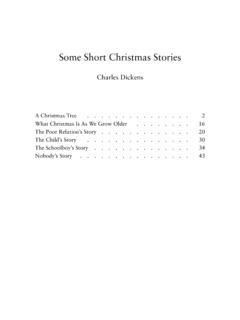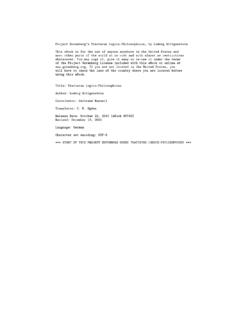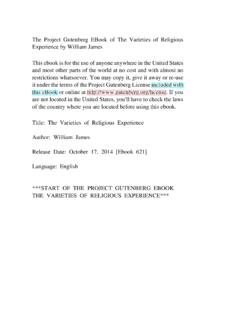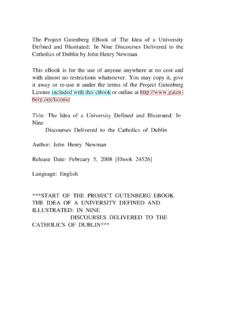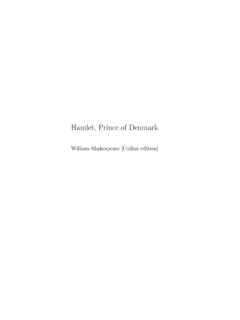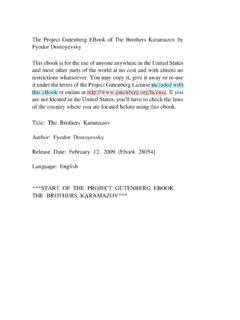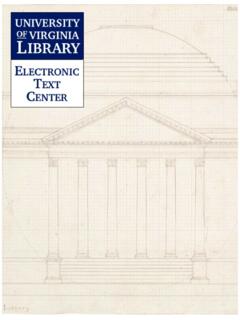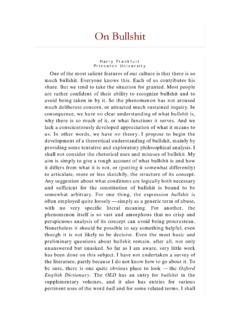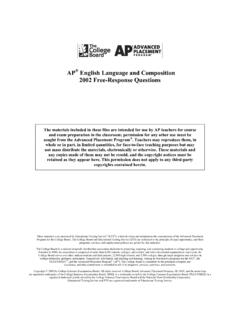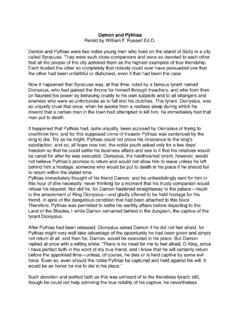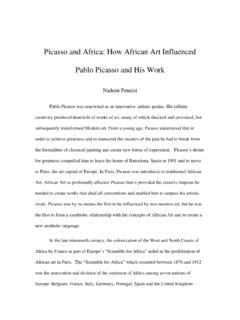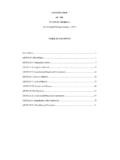Transcription of Project Gutenberg’s An Investigation of the Laws of ...
1 Project gutenberg s An Investigation of the Laws of Thought, by George BooleThis eBook is for the use of anyone anywhere in the United States and mostother parts of the world at no cost and with almost no restrictionswhatsoever. You may copy it, give it away or re-use it under the terms ofthe Project gutenberg License included with this eBook or online If you are not located in the United States, you ll haveto check the laws of the country where you are located before using this : An Investigation of the Laws of ThoughtAuthor: George BooleRelease Date: July 19, 2017 [EBook #15114]Language: EnglishCharacter set encoding: ASCII** START OF THIS Project gutenberg EBOOK LAWS OF THOUGHT **iAN INVESTIGATIONOFTHE LAWS OF THOUGHT,ON WHICH ARE FOUNDEDTHE MATHEMATICAL THEORIES OF LOGIC BOOLE, LL. OF MATHEMATICS IN QUEEN S COLLEGE, RYALL, AND PROFESSOR OF GREEKIN QUEEN S COLLEGE, CORK,THIS WORK IS INSCRIBEDIN TESTIMONY OF FRIENDSHIP AND ESTEEMPREFACE.
2 The following work is not a republication of a former treatise by the Author,entitled, The Mathematical Analysis of Logic. Its earlier portion is indeeddevoted to the same object, and it begins by establishing the same system offundamental laws, but its methods are more general, and its range of applica-tions far wider. It exhibits the results, matured by some years of study andreflection, of a principle of Investigation relating to the intellectual operations,the previous exposition of which was written within a few weeks after its ideahad been portion of this work which relates to Logic presupposes in its reader aknowledge of the most important terms of the science, as usually treated, andof its general object. On these points there is no better guide than ArchbishopWhately s Elements of Logic, or Mr. Thomson s Outlines of the Laws ofThought. To the former of these treatises, the present revival of attention tothis class of studies seems in a great measure due.
3 Some acquaintance with theprinciples of Algebra is also requisite, but it is not necessary that this applicationshould have been carried beyond the solution of simple equations. For the studyof those chapters which relate to the theory of probabilities, a somewhat largerknowledge of Algebra is required, and especially of the doctrine of Elimination,and of the solution of Equations containing more than one unknown information upon the subject-matter will be found in the specialtreatises on Probabilities in Lardner s Cabinet Cyclop dia, and the Libraryof Useful Knowledge, the former of these by Professor De Morgan, the latterby Sir John Lubbock; and in an interesting series of Letters translated fromthe French of M. Quetelet. Other references will be given in the work. Ona first perusal the reader may omit at his discretion, Chaptersx.,xiv., andxix., together with any of the applications which he may deem uninviting different parts of the work, and especially in the notes to the concludingchapter, will be found references to various writers, ancient and modern, chieflydesigned to illustrate a certain view of the history of philosophy.
4 With respectto these, the Author thinks it proper to add, that he has in no instance citation which he has not believed upon careful examination to be supportedeither by parallel authorities, or by the general tenor of the work from whichit was taken. While he would gladly have avoided the introduction of anythingwhich might by possibility be construed into the parade of learning, he felt itto be due both to his subject and to the truth, that the statements in the textshould be accompanied by the means of verification. And if now, in bringingto its close a labour, of the extent of which few persons will be able to judgefrom its apparent fruits, he may be permitted to speak for a single momentof the feelings with which he has pursued, and with which he now lays aside,his task, he would say, that he never doubted that it was worthy of his bestefforts; that he felt that whatever of truth it might bring to light was not aprivate or arbitrary thing, not dependent, as to its essence, upon any humanopinion.
5 He was fully aware that learned and able men maintained opinionsupon the subject of Logic directly opposed to the views upon which the entireargument and procedure of his work rested. While he believed those opinions tobe erroneous, he was conscious that his own views might insensibly be warpedby an influence of another kind. He felt in an especial manner the danger of thatintellectual bias which long attention to a particular aspect of truth tends toproduce. But he trusts that out of this conflict of opinions the same truth willbut emerge the more free from any personal admixture; that its different partswill be seen in their just proportion; and that none of them will eventually betoo highly valued or too lightly regarded because of the prejudices which mayattach to the mere form of its his valued friend, the Rev. George Stephens Dickson, of Lincoln, theAuthor desires to record his obligations for much kind assistance in the revisionof this work, and for some important ,Grenville-place, Cork,Nov.
6 30th. CHAPTER and Design of this Work,.. 1 CHAPTER and their Laws,.. 17 CHAPTER of the Laws,.. 28 CHAPTER of Propositions,.. 37 CHAPTER of Symbolic Reasoning,.. 48 CHAPTER Interpretation,.. 59 CHAPTER Elimination,.. 74 CHAPTER Reduction,.. of Abbreviation,.. 100 CHAPTER of a Perfect Method,.. 117 CHAPTER Secondary Propositions,.. 124 CHAPTER in Secondary Propositions,.. 137 CHAPTER and Spinoza,.. 143 CHAPTER of Analysis,.. 169 CHAPTER the Aristotelian Logic,.. 174 CHAPTER the Theory of Probabilities,.. 187 CHAPTER Method in Probabilities,.. 194 CHAPTER Illustrations,.. 211 CHAPTER Statistical Conditions,.. 227 CHAPTER on Causes,.. 247 CHAPTER of Judgments,.. 293 CHAPTER of the Intellect,.. Prop. II., p. 261, by the absolute probabilities of the eventsx,y, simply what the probabilities of those events ought to be, in order that,regarding them as independent, and their probabilities as our only data, thecalculated probabilities of the same events under the conditionVshould bep,g, statement of the appended problem of the urn must be modifiedin a similar way.
7 The true solution of that problem, as actually stated, isp =cp,q =cq, in whichcis the arbitrary probability of the condition thatthe ball drawn shall be either white, or of marble, or both at once. See p. 270,CASE II.*Accordingly, since by the logical reduction the solution of all questions inthe theory of probabilities is brought to a form in which, from the probabil-ities of simple events,s,t, &c. under a given condition,V, it is required todetermine the probability of some combination,A, of those events under thesame condition, the principle of the demonstration in Prop. IV. is really thefollowing: The probability of such combinationAunder the conditionVmustbe calculated as if the eventss,t, &c. were independent, and possessed ofsuch probabilities as would cause the derived probabilities of the said eventsunder the same conditionVto be such as are assigned to them in the data.
8 This principle I regard as axiomatic. At the same time it admits of indefiniteverification, as well directly as through the results of the method of which itforms the basis. I think it right to add, that it was in the above form that theprinciple first presented itself to my mind, and that it is thus that I have alwaysunderstood it, the error in the particular problem referred to having arisen frominadvertence in the choice of a material INATURE AND DESIGN OF THIS The design of the following treatise is to investigate the fundamental laws ofthose operations of the mind by which reasoning is performed; to give expressionto them in the symbolical language of a Calculus, and upon this foundation toestablish the science of Logic and construct its method; to make that methoditself the basis of a general method for the application of the mathematicaldoctrine of Probabilities; and, finally, to collect from the various elements oftruth brought to view in the course of these inquiries some probable intimationsconcerning the nature and constitution of the human That this design is not altogether a novel one it is almost needless toremark, and it is well known that to its two main practical divisions of Logicand Probabilities a very considerable share of the attention of philosophers hasbeen directed.
9 In its ancient and scholastic form, indeed, the subject of Logicstands almost exclusively associated with the great name of Aristotle. As itwas presented to ancient Greece in the partly technical, partly metaphysicaldisquisitions of the Organon, such, with scarcely any essential change, it hascontinued to the present day. The stream of original inquiry has rather been di-rected towards questions of general philosophy, which, though they have arisenamong the disputes of the logicians, have outgrown their origin, and given tosuccessive ages of speculation their peculiar bent and character. The eras ofPorphyry and Proclus, of Anselm and Abelard, of Ramus, and of Descartes,together with the final protests of Bacon and Locke, rise up before the mindas examples of the remoter influences of the study upon the course of humanthought, partly in suggesting topics fertile of discussion, partly in provokingremonstrance against its own undue pretensions.
10 The history of the theoryof Probabilities, on the other hand, has presented far more of that character ofsteady growth which belongs to science. In its origin the early genius of Pascal, in its maturer stages of development the most recondite of all the mathematicalspeculations of Laplace, were directed to its improvement; to omit here themention of other names scarcely less distinguished than these. As the study ofLogic has been remarkable for the kindred questions of Metaphysics to whichit has given occasion, so that of Probabilities also has been remarkable for theimpulse which it has bestowed upon the higher departments of mathematical1 CHAPTER I. NATURE AND DESIGN OF THIS WORK2science. Each of these subjects has, moreover, been justly regarded as havingrelation to a speculative as well as to a practical end. To enable us to deducecorrect inferences from given premises is not the only object of Logic; nor is itthe sole claim of the theory of Probabilities that it teaches us how to establishthe business of life assurance on a secure basis; and how to condense whateveris valuable in the records of innumerable observations in astronomy, in physics,or in that field of social inquiry which is fast assuming a character of greatimportance.
